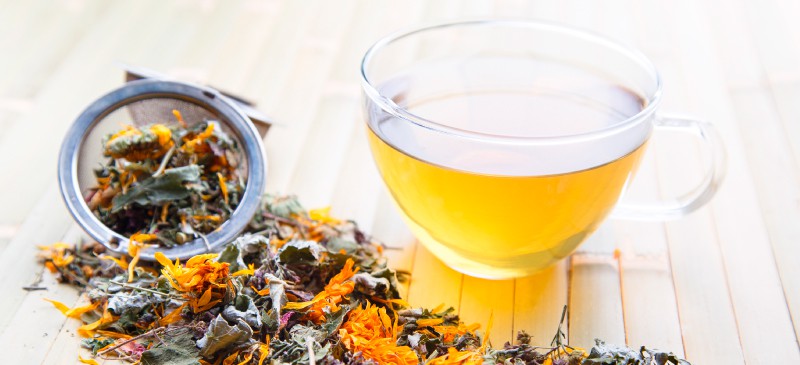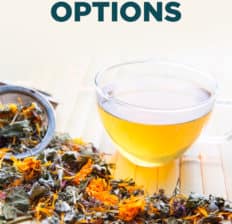This Dr. Axe content is medically reviewed or fact checked to ensure factually accurate information.
With strict editorial sourcing guidelines, we only link to academic research institutions, reputable media sites and, when research is available, medically peer-reviewed studies. Note that the numbers in parentheses (1, 2, etc.) are clickable links to these studies.
The information in our articles is NOT intended to replace a one-on-one relationship with a qualified health care professional and is not intended as medical advice.
This article is based on scientific evidence, written by experts and fact checked by our trained editorial staff. Note that the numbers in parentheses (1, 2, etc.) are clickable links to medically peer-reviewed studies.
Our team includes licensed nutritionists and dietitians, certified health education specialists, as well as certified strength and conditioning specialists, personal trainers and corrective exercise specialists. Our team aims to be not only thorough with its research, but also objective and unbiased.
The information in our articles is NOT intended to replace a one-on-one relationship with a qualified health care professional and is not intended as medical advice.
Herbal Tea Benefits + How to Make at Home
May 6, 2024

Herbal tea is made from plants that have therapeutic properties, with impressive nutritional value and health-promoting antioxidants. This type of tea is commonly consumed in traditional medicine to help the body maintain balance and ward off illness.
Adding a daily cup of herbal tea to your diet can boost your antioxidant intake by a whole lot, help support a healthy heart and brain, and support digestive health. It’s an easy way to combat oxidative stress that can cause illness, promote healthy aging and keep your body in balance.
What Is Herbal Tea?
Herbal teas are made from dried herbs, flowers, fruits and spices. They are consumed for their therapeutic, health-promoting properties.
Unlike true teas that come from the Camellia sinensis plant, herbal teas are not made from the leaves of this “tea shrub.” White tea, green tea, oolong tea and black tea are all made from a C. sinensis variety, but herbal teas are brewed from ingredients that you may already have in your kitchen.
Top 11 Healthiest Herbal Teas (Plus Benefits)
1. Ginger Tea
Ginger tea has been consumed for thousands of years to relieve nausea and digestive complaints. Ginger contains valuable compounds, including gingerol, which is particularly beneficial for issues related to inflammation and immune system health.
A systematic review published in 2020 indicates that ginger helped improve nausea, inflammation, metabolic syndromes, digestive function and colorectal cancers.
To make ginger tea at home, add a clean two-inch knob of fresh ginger to two cups of boiling water, and let it simmer for 10–20 minutes. To enhance its flavor and impact, you can add lemon juice and a pinch of cayenne pepper.
2. Chamomile Tea
There are numerous chamomile benefits, including its ability to ease anxiety, relieve seasonal allergy symptoms, reduce muscle spasms and improve insomnia. It’s also used to alleviate PMS symptoms and other menstrual disorders.
It’s been consumed for nearly 5,000 years and remains one of the most popular herbal teas today.
Research shows that chamomile contains many bioactive constituents that are used for medicinal preparations, including antioxidants that help fight free radical damage and work to prevent cell mutation.
You can find a high-quality chamomile tea at just about any grocery or health food store. Look for a tea that’s made with pure chamomile flower leaves, which is where the beneficial oils are held.
3. Turmeric Tea
Turmeric tea is made from the root and powder of the beneficial herb. The active ingredient, curcumin, has been proven to have impressive anti-inflammatory effects. It’s able to help decrease markers of inflammation that may contribute to conditions like autoimmune disease.
Drinking turmeric tea can also help relieve joint pain, enhance immune function and regulate blood sugar levels.
You can make turmeric tea with dried, ground and powdered forms of the herb. Allow about two tablespoons of turmeric to simmer in two to four cups of water for 10 minutes. Then strain the water, and add ginger for flavor.
4. Peppermint Tea
Peppermint tea has been studied for its anti-inflammatory and antimicrobial properties. It’s consumed to ease IBS symptoms and reduce respiratory congestion, too.
You may also find that drinking a cup of this anti-inflammatory tea gives you a boost of energy because of the invigorating effects of the menthol compound.
Peppermint tea can be found at most grocery or health food stores. You can also make your own by adding one to two drops of a good-quality, pure-grade peppermint essential oil to green, white or black tea.
5. Chrysanthemum Tea
Chrysanthemum tea, which comes from the mum plant, features an impressive phytochemical content. It has been consumed in Traditional Chinese Medicine for centuries for its healing, health-promoting properties.
It has cooling and calming properties, which is why it’s often used to relieve cold and respiratory conditions and reduce fever. It’s also rich in antioxidants, including anthocyanin, and it has been shown to support heart health.
You can purchase chrysanthemum tea at health food stores or make your own at home by adding three to six whole mum flowers (that haven’t been grown with chemicals) to simmering water for five minutes.
6. Rooibos Tea
Rooibos tea is an herbal tea that’s native to South Africa and comes from a plant that’s rich in antioxidants (with 50 percent more antioxidants than green tea) and has impressive anti-inflammatory effects. It’s best known for its quercetin and aspalathin content, which work to protect cells against free radical damage.
Rooibos tea benefits liver and digestive health, too, and may help diabetics.
You can find red and green rooibos tea at health food stores, or it can be brewed at home. Rooibos should be steeped longer than most other herbal teas, so leave it for 10–15 minutes.
7. Dandelion Tea
Dandelion roots and flowers make for a nutritious and health-promoting herbal tea. Dandelion tea is rich in vitamin K, which is important for bone health, and it’s an excellent liver cleanser that serves as a natural diuretic.
It has also been found to fight diabetes and provide disease-preventing antioxidants.
Like most popular herbal teas, you can find dandelion tea for sale at your grocery store, but you also have the option of preparing it at home. Simply steep one tablespoons of stems or flowers for 30 minutes in simmering water. If you use dandelions from your garden, make sure they haven’t been exposed to chemical pesticides or fertilizers.
8. Chaga Tea
It’s no wonder why mushroom coffee and tea are rising in popularity recently. They are rich in nutrients that offer immune system support, fight cancer, reduce inflammation and boost endurance.
Chaga tea helps strengthen the immune system and possesses potent antiviral and antibacterial effects.
You can purchase mushroom tea that’s commonly made with a combination of chaga mushroom, reishi, lion’s mane and turkey tail. To make chaga tea, let three whole mushrooms simmer in boiled water for about three minutes.
9. Ashwagandha Tea
Drinking ashwagandha tea is a common practice in Ayurvedic medicine, and it’s been used for thousands of years. Ashwagandha works as an adaptogen that helps the body deal with stress so it can stay in balance.
Ashwagandha is one of the healthiest teas because it helps counteract many of the biological changes that occur when you’re dealing with chronic stress. It has been found to help reduce cortisol levels, overcome symptoms of adrenal fatigue, stabilize mood and reduce inflammation.
It’s easy to find ashwagandha tea bags, but there’s an easy tea recipe too. Add about a teaspoon of dried ashwagandha roots to a cup of simmering water, and let it sit for 10 minutes.
10. Cinnamon Tea
There’s something very comforting about drinking cinnamon tea on a cool day. It’s warming and can help reduce inflammation, stabilize blood sugar, boost brain function and support heart health.
Research shows that cinnamon tea may help lower LDL cholesterol and triglycerides. It can also help patients control diabetes by decreasing fasting blood sugar levels and enhancing the effectiveness of insulin.
11. Hibiscus Tea
Hibiscus tea comes from the plant’s flowers and originated as a therapeutic beverage in North Africa and Southeast Asia. Hibiscus tea can help reduce blood pressure in people with hypertension, improve cholesterol levels, fight oxidative stress and combat insulin resistance.
It also contains bioflavonoids that may help fight depression and boost mood.
Hibiscus can be purchased in dried or extract form. You can add the dried flowers to simmering water for five to 10 minutes or purchase hibiscus tea at most grocery stores.
Other beneficial teas include:
- Jasmine tea
- Red raspberry leaf tea
- Butterfly pea flower tea
- Echinacea tea
- Sage tea
- Lemon balm tea
- Rosehip tea
- Passion flower tea
How to Make Tea
Making herbal tea is simple, and you can pretty much follow the same tea recipe for each herb or plant, with perhaps a few changes depending on the type.
In general, add about one tablespoon of plant roots, stems or flowers to one cup of boiling water. Then let the plant parts steep in simmering water or hot water that has been removed from heat.
Steep times vary from plant to plant — most commonly five to 15 minutes.
For plant parts, you can use them fresh, dried or even in extract form. Adding one to two drops of a high-quality essential oil, for example, can make an herbal tea.
Some herbal teas taste more earthy than others, so adding lemon, honey or stevia is a great option for sweetening your tea. If you add raw honey, make sure the tea cools first.
Risks and Side Effects
Each herbal tea comes with its own unique precautions and potential side effects. It’s possible to experience allergy symptoms from an herb, so if you notice an itchy throat, redness, swelling or upset stomach, stop drinking that type of tea immediately.
Some herbal teas should not be combined with certain medications and shouldn’t be consumed by women who are pregnant. Hibiscus tea, for example, should never be consumed during pregnancy because it may put women at risk of premature labor.
It’s generally safe to consume one to two cups of herbal tea per day.
You can, of course, overdo it and increase the risk of experiencing adverse side effects. It’s best to drink herbal teas in moderation, not exceeding four cups per day.
Conclusion
- Herbal tea has been consumed for thousands of years for its therapeutic properties. There are several types of herbal teas, which are made from plant parts that are steeped in hot water.
- There are several popular herbal teas that offer a range of health benefits, including chamomile, turmeric, cinnamon, chaga and ashwagandha teas. They are loaded in health-promoting antioxidants and help promote better mood, health health and more.
- To make herbal tea at home, simple add the plant parts to boiled water, and let simmer or steep for five to 15 minutes. Then strain the parts and enjoy.










